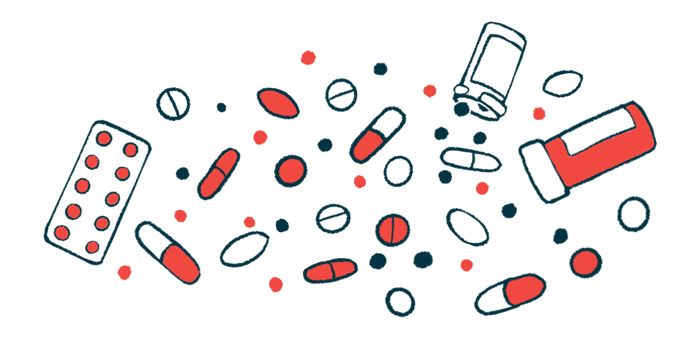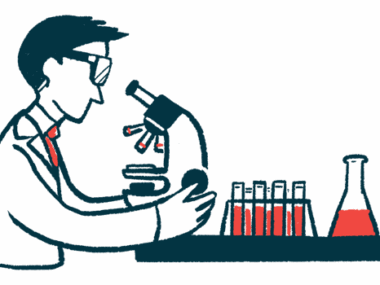Patients with mental health issues benefit from lower Kaftrio dose
10 participants in study developed anxiety, irritability, sleep problems after 4 weeks
Written by |

Reducing the dose of Kaftrio (elexacaftor, tezacaftor, and ivacaftor) should be considered for cystic fibrosis (CF) patients who report cognitive and psychological side effects, a study in Ireland suggests.
Such patients should have an individualized dosage to minimize side effects while maintaining CFTR modulator therapy.
“Dose reduction resulted in resolution of self-reported mental/psychological AEs [adverse events], without loss of clinical effectiveness,” the researchers wrote in “Individualized approach to elexacaftor/tezacaftor/ivacaftor dosing in cystic fibrosis, in response to self-reported anxiety and neurocognitive adverse events: A case series,” which was published in Frontiers in Pharmacology.
CF is caused by mutations in the CFTR gene, which provides instructions for making the CFTR protein that acts as a “gate” on the surface of certain cells, regulating the flow in and out of chloride ions (a type of salt particle). These mutations cause CFTR to be missing or dysfunctional.
CFTR modulators address this underlying cause in those with specific mutations. Kaftrio — sold as Trikafta in the U.S. — is a triple combination therapy sold by Vertex Pharmaceuticals that’s been effective in clinical trials and real world studies. Some patients on CFTR modulators develop mental health and cognitive issues, however.
In this study, researchers adopted a dose reduction protocol in patients with self-reported mental or psychological concerns.
For adults or those weighing at least 30 kg (about 66 pounds), each Kaftrio tablet in Europe has 75 mg of ivacaftor, 50 mg of tezacaftor and 100 mg elexacaftor. The recommended daily dose for them is two tablets in the morning and one ivacaftor tablet (150 mg) in the evening.
The dose reduction protocol was based on a Phase 2 clinical trial (NCT03227471) that showed a clinical response to lower doses of elexacaftor.
Full dose Kaftrio was initiated on 126 adults with CF who attended the Cork Centre for Cystic Fibrosis in Ireland, between October 2020 and May 2021. The patients had no previous reports of anxiety and depression and were on other CFTR modulators before switching to Kaftrio — five on Kalydeco (ivacaftor), five on Orkambi (lumacaftor/ivacaftor).
Reducing Kaftrio dosage eased mental health symptoms
Within four weeks of starting treatment, 10 participants (7.9%) developed self-reported intense anxiety, irritability, sleep disturbance, and/or mental slowness. At the same time, their lung function improved and sweat chloride was reduced — an indirect measure of CFTR function restoration — as seen in clinical trials.
“We believe the mental health AEs [side effects] in our cohort may be related to the add-on effect of the CFTR correctors elexacaftor and/or tezacaftor, as all patients in this subgroup were previously on either ivacaftor or lumacaftor/ivacaftor,” the researchers wrote.
Nine patients started the dose reduction protocol. One decided to discontinue Kaftrio and return to Kalydeco. Four were referred for psychological support and required anxiety medications that were discontinued within two weeks.
The therapy was discontinued for those with severe cognitive or psychological side effects until these were resolved and was reintroduced at a lower dose, starting with a single daily tablet of elexacaftor at 100 mg, tezacaftor 50 mg, and ivacaftor 75 mg. Reintroducing the evening ivacaftor dose was planned at four to six weeks and returning to full dose therapy at 10–12 weeks, guided by clinical efficacy parameters, the absence of mental health events, and the preference of the patients.
Those with modest mental health side effects events were reduced to the same dosage, but the ivacaftor 150 mg evening dose was continued. Returning to full-dose therapy was considered at 10-12 weeks, also.
The ongoing clinical response was measured based on lung function and sweat chloride levels every four to six weeks in the first 12 weeks.
The mental health issues resolved within two weeks for most patients. The reduced dose’s effectiveness was comparable to the full dose during and at the end of 12 weeks.
Specifically, the mean ppFEV1, a lung function measure of the amount of air forcefully expelled in one second, was 83.4% at 12 weeks versus 80.7% on full-dose Kaftrio. Mean sweat chloride was 34 mmol/L on the reduced dose and 33.4 with the full dose.
At 12 weeks on the reduced dose, six patients remained on that regimen, while three switched back to a full dose. For those who completed 24 weeks on the reduced regimen, CT imaging showed a significant improvement compared to before starting Kaftrio.
These results “highlight that some patients do not tolerate standard full dose of CFTR modulator therapy. There is a need in small groups of patients who develop AEs, to individualize dosage,” the researchers said.







